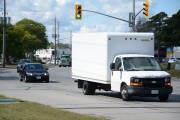Research & Analysis
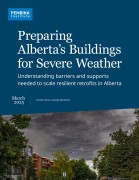
Buildings
March 28, 2025
Publication
Preparing Alberta's Buildings for Severe Weather
Understanding barriers and supports needed to scale resilient retrofits in Alberta

Buildings
March 28, 2025
Media Release
Report outlines actions needed to prepare Alberta’s buildings for severe weather
In the past decade, four of Canada’s 10 most costly weather-related disasters happened in Alberta

Remote Communities
March 26, 2025
Media Release
Clean energy leaders in Whitehorse for unique gathering on remote and Indigenous energy access
2025 marks the tenth anniversary of Pembina Institute’s Renewables in Remote Communities conference


Transportation
March 21, 2025
Op-ed
As the U.S. drives backwards, Canada must pull ahead
Despite today’s turmoil, smart EV policies will create jobs, investment, and long-term growth.
Support our work
Your support plays a crucial role in our efforts to keep doing quality research and providing expert analysis.
Donate Now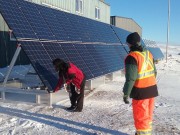
Remote Communities
March 21, 2025
Article
The Clean Energy Transition in Remote Communities
Five questions with the Renewables in Remote Communities program
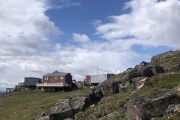
Remote Communities
March 20, 2025
Article
Diesel dependency: the hidden cost of living in remote communities
And how clean energy is changing the narrative
Electricity, Oil & Gas
March 17, 2025
Media Release
Pembina statement on industrial carbon pricing in Canada
Current system ensures big emitters either reduce their emissions or pay for the research and development of emissions-reducing technologies that will protect their industries’ global competitiveness
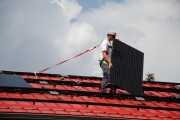
Equitable Transition
March 13, 2025
Article
Protecting workers key to Canada’s short-term tariff response
The country needs short- and long-term strategies in this chaotic moment
Oil & Gas
March 12, 2025
Media Release
New analysis of oil and gas emissions cap assumes industry does not follow through on its promises to Canadians
Instead of taking advantage of government financial incentives to maximize all possible emissions reductions, companies choose to produce less oil and gas overall


